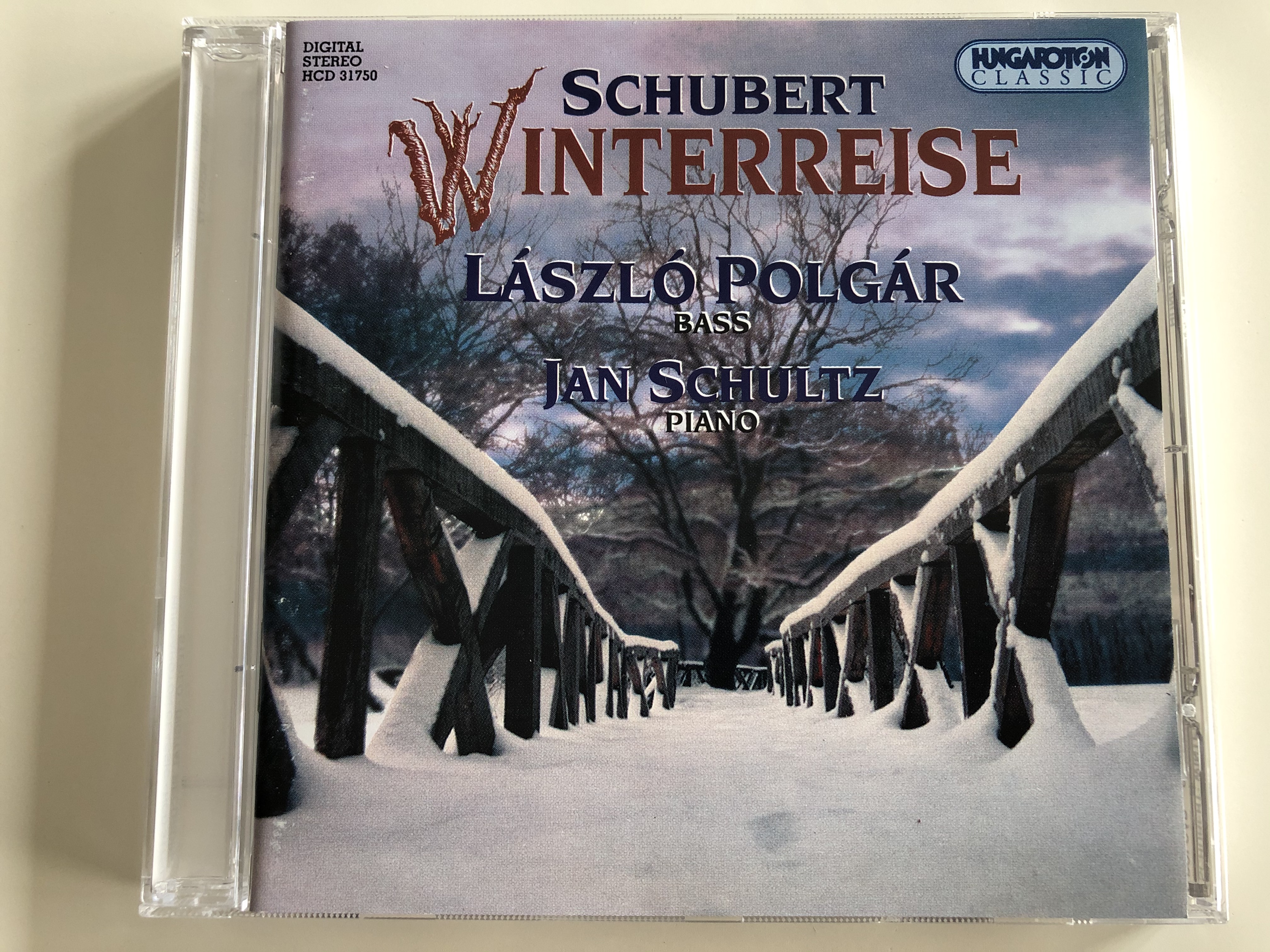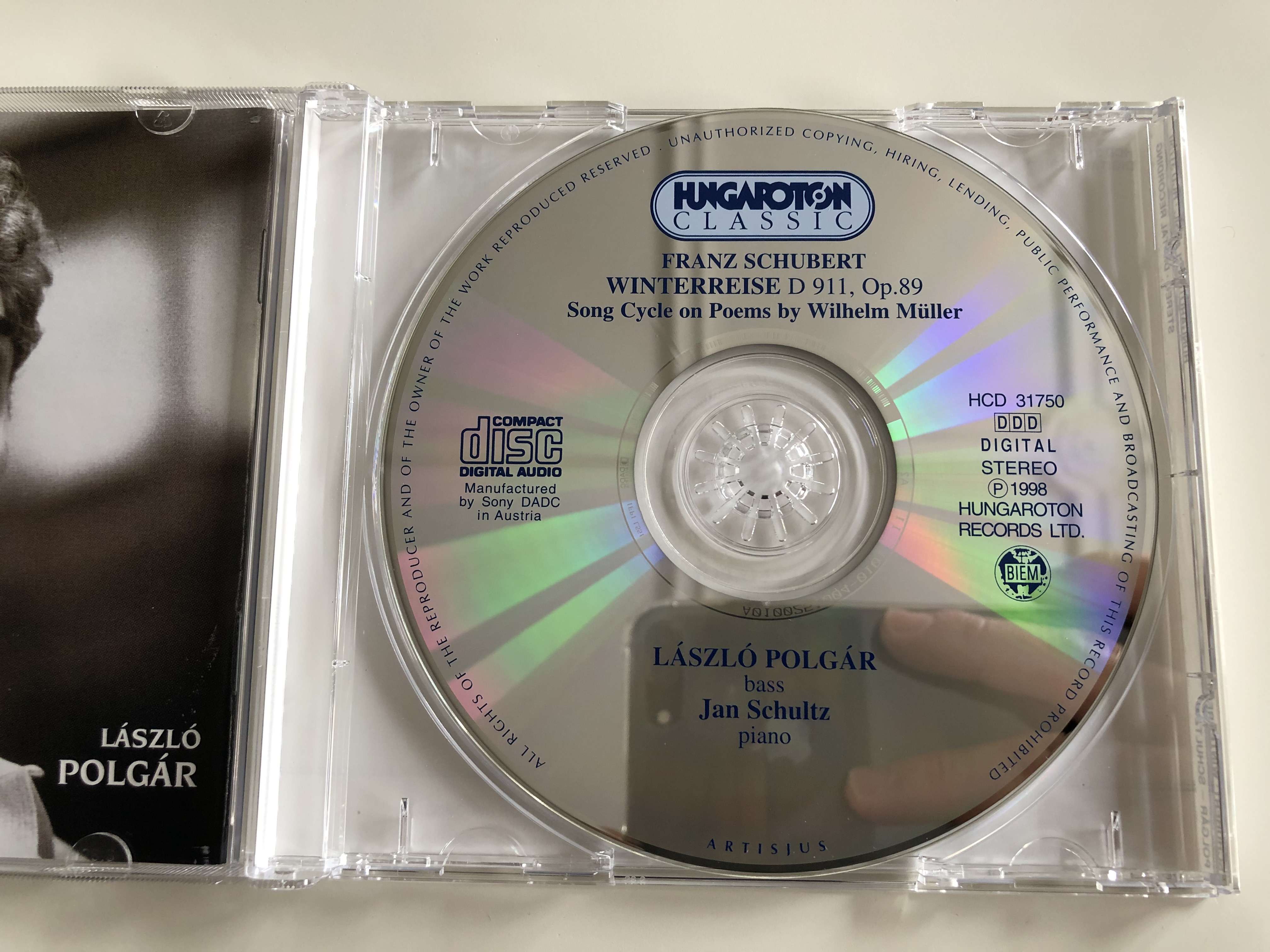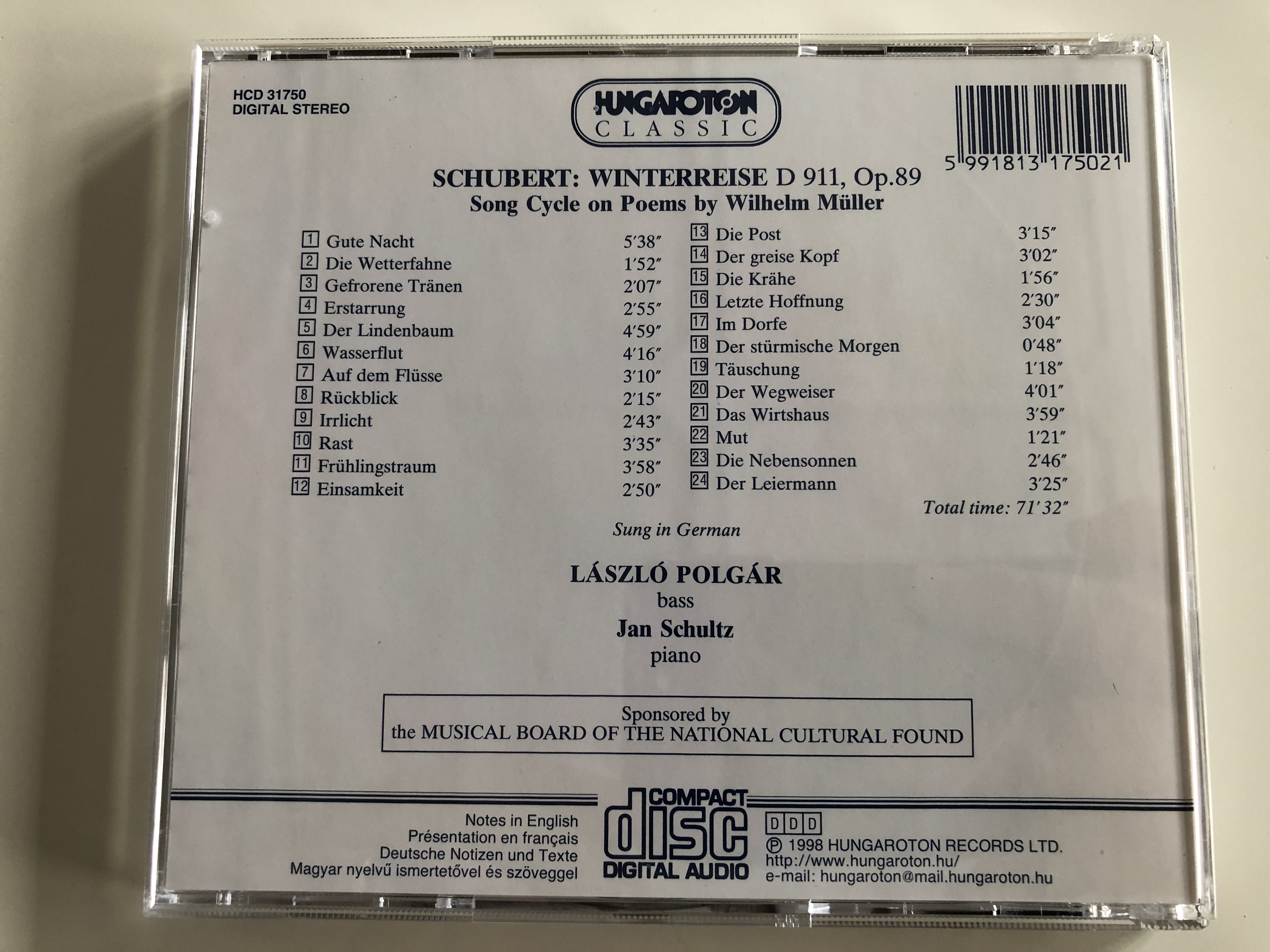Description
Schubert - Winterreise D 911, Op.89 Song Cycle on Poems by Wilhelm Müller / Laszlo Polgar - bass, Jan Schultz - piano / Hungaroton Classic Audio CD 1998 Stereo / HCD31750
UPC 5991813175021
Total Playtime 71:32
Sung in German
Johann Ludwig Wilhelm Müller (7 October 1794 – 30 September 1827) was a German lyric poet, most well known as the author of Die schöne Müllerin and Winterreise, the famous Franz Schubert song cycles.
Tracklist:
1. Gute Nacht 5:38
2. Die Wetterfahne 1:52
3. Gefrorene Tränen 2:07
4. Erstarrung 2:55
5. Der Lindenbaum 4:59
6. Wasserflut 4:16
7. Auf dem Flüsse 3:10
8. Rückblick 2:15
9. Irrlicht 2:43
10. Rast 3:35
11. Frühlingstraum 3:58
12. Einsamkeit 2:50
13. Die Post 3:15
14. Der greise Kopf 3:02
15. Die Krähe 1:56
16. Letzte Hoffnung 2:30
17. Im Dorfe 3:04
18. Der stürmische Morgen 0:48
19. Täuschung 1:18
20. Der Wegweiser 4:01
21. Das Wirtshaus 3:59
22. Mut 1:21
23. Die Nebensonnen 2:46
24. Der Leiermann 3:25
- Bass - Laszlo Polgar
- Piano - Jan Schultz
Winterreise (Winter Journey) is a song cycle for voice and piano by Franz Schubert (D. 911, published as Op. 89 in 1828), a setting of 24 poems by Wilhelm Müller. It is the second of Schubert's two great song cycles on Müller's poems, the earlier being Die schöne Müllerin (D. 795, Op. 25, 1823).
Both were originally written for tenor voice but are frequently transposed to other vocal ranges, a precedent set by Schubert himself. The two works pose interpretative demands on listeners and performers due to their scale and structural coherence. Although Ludwig van Beethoven's cycle An die ferne Geliebte (To the Distant Beloved) was published earlier, in 1816, Schubert's cycles hold the foremost place in the genre's history.
SONGS:
1. "Gute Nacht" ("Good Night"): "A stranger I arrived; a stranger I depart." In May, he won the love of a girl and hoped to marry her. But now the world is dreary, and he must leave, in winter, in the dead of night, finding his own way in the trackless snow. "Love loves to wander—from one person to the next." He writes "Good Night" on her gate as he passes to show he thought of her.
2. "Die Wetterfahne" ("The Weathervane"): The weathervane on her house creaks in the shifting winds, mocking him and showing the inconstant hearts inside. "What do they care about my suffering? Their child is a wealthy bride!"
3. "Gefror'ne Tränen" ("Frozen Tears"): He notices he has been crying and chides his tears for being only lukewarm so that they freeze. They come out of his heart hot enough to melt all the winter's ice!
4. "Erstarrung" ("Frozen"): He looks in vain for her footprints beneath the snow where she once walked with him through the green meadow; he wants to melt away the snow and ice with his tears. He has nothing to remember her by except his pain. She is frozen in his heart; if it thaws, her image will flow away.
5. "Der Lindenbaum" ("The Linden Tree"): The tree, a reminder of happier days, seems to call him, promising rest. But he turns away, into the cold wind. And now, miles away, he still hears it calling him: "Here you would find peace."
6. "Wasserflut" ("Flood"): The cold snow thirstily sucks up his tears; when the warm winds blow, the snow and ice will melt, and the brook will carry them through the town to where his sweetheart lives.
...









































